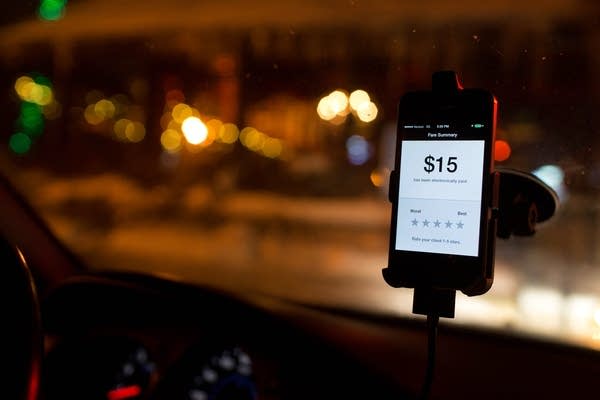St. Paul orders Uber, Lyft to turn over names of ride-share drivers

Go Deeper.
Create an account or log in to save stories.
Like this?
Thanks for liking this story! We have added it to a list of your favorite stories.
The St. Paul City Council Wednesday ordered Lyft, Uber and other ride share operations to turn over driver names on demand as a condition of continuing to operate in the city.
Council members voted unanimously to require the names be made available to city inspectors. The ordinance is similar to one passed earlier this year in Minneapolis. In St. Paul, however, the decision was held up for months as Uber lobbied to withhold driver names, arguing they were essentially trade secrets.
The companies have been operating in St. Paul without oversight for more than a year now. The city needed the names to ensure drivers have gone through training, don't have serious moving violations on their records and have submitted to criminal background checks, Ricardo Cervantes, head of the city's Department of Safety and Inspections, said prior to the vote Wednesday.
The city won't collect data on all ride-share drivers, but will just audit a sample, Cervantes emphasized. The new rules also require each ride share service to pay a $35,000 a year licensing fee to the city.
Turn Up Your Support
MPR News helps you turn down the noise and build shared understanding. Turn up your support for this public resource and keep trusted journalism accessible to all.
Uber, Lyft and other operations have jumped in popularity in recent years. The companies use cell phone apps to easily connect people looking for rides with drivers looking to earn some extra money.
Uber didn't make a spokesman available in time for this story. But at a public hearing last month before the St. Paul City Council, Uber lobbyist Joel Carlson explained the company is worried about a state law that says data collected by local governments are presumed to be public.
There's fierce competition between Uber and Lyft. The companies aren't just fighting for customers. They also actively try to recruit each other's drivers.
While Minnesota state law provides some protection for trade secrets, it's unlikely a simple list of names would fit that definition, said Minneapolis business licensing director Grant Wilson.
Uber and Lyft raised the same concerns earlier this year when Minneapolis was crafting its regulations. The city gave the companies the same answer as St. Paul did Wednesday night: It needs to collect data in order to enforce the law.
Uber has been criticized for how it handles its own data. DFL U.S. Sen Al Franken has been pushing the company to enact more safeguards to protect information about where its customers travel.


